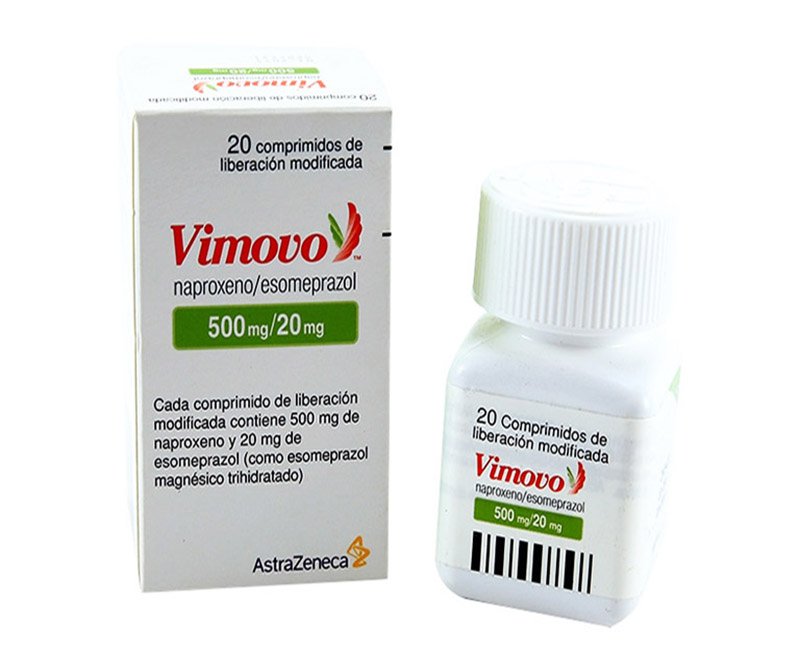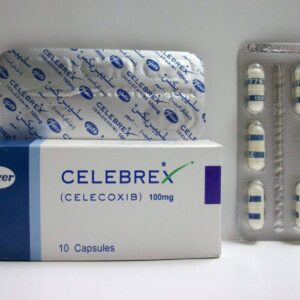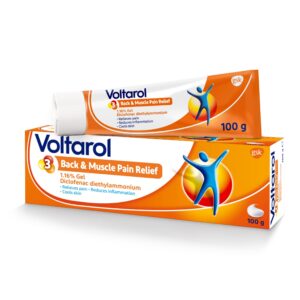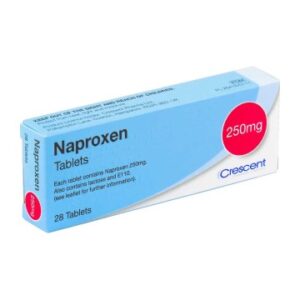What is Vimovo?
Vimovo contains two different medicines called naproxen and esomeprazole. Each of these medications works differently.
Naproxen belongs to a group of medicines called “non-steroidal anti-inflammatory drugs” (NSAIDs), they work by reducing pain and inflammation. vimovo price
Esomeprazole belongs to a group of medicines called “proton pump inhibitors”. Reduces the amount of acid in your stomach. Esomeprazole helps reduce the risk of ulcers and stomach problems that appear in patients who need to take NSAIDs. vimovo pil
How does it work?
Functioning as a strong anti-inflammatory medication, Vimovo has been developed as a sequential-release tablet formulation that combines a layer of immediate-release magnesium esomeprazole and a delayed-release enteric-coated naproxen core. As a result, esomeprazole is released into the stomach prior to the dissolution of naproxen. In the small intestine, the enteric coating prevents the release of naproxen with pH values less than 5, thus providing protection against possible local gastric toxicity of naproxen. discount vimovo
Due to the delayed release of naproxen, Vimovo is not indicated, nor has it been studied, in acute pain.
Naproxen is an NSAID that has analgesic and antipyretic properties. The mechanism of action of naproxen anions, like that of other NSAIDs, is not fully understood but could be related to the inhibition of prostaglandin synthesis.
Esomeprazole is the S-enantiomer of omeprazole and reduces gastric acid secretion through a specific selective mechanism of action. Esomeprazole is a weak base, which concentrates and converts to the active form in the extremely acidic medium of the secretory canaliculi of the parietal cell, where it inhibits the enzyme H + K + -ATPase, the proton pump, and inhibits both acid secretion basal as stimulated. cheap vimovo
What are the benefits of taking it?
Vimovo uses include being indicated for the treatment of:
- Osteoarthritis
- Rheumatoid arthritis.
- Ankylosing spondylitis.
Vimovo helps reduce pain, swelling, redness, and heat (inflammation).
You will receive this medicine if it is considered unlikely that a lower dose of NSAIDs will relieve your pain and you are at risk of developing an ulcer in the stomach or an ulcer in the first part of the small intestine (duodenum) while taking NSAIDs. wholesale vimovo
How do I use it and its dosage?
Always use the Vimovo medication exactly as your doctor has told you. If in doubt, consult your doctor or pharmacist again. vimovo tablets
Swallow the tablets whole with water. Do not split, chew, or crush the tablets. It is important that you swallow the tablets whole for the medicine to work properly. vimovo 500/20mg
Take the tablets at least 30 minutes before meals. Food can reduce the protective effect of Vimovo on your stomach and intestine. Food can also cause a considerable delay in relieving pain and inflammation.
If you have been taking this medicine for a long time, your doctor will want to carry out controls (especially if you have been taking it for more than a year). vimovo side effects
How much should you take
The recommended Vimovo dosage
Take one tablet twice a day for as long as your doctor tells you.
Vimovo is only available as 500 mg / 20 mg. If your doctor thinks this dose is not suitable for you, he or she may prescribe another treatment. vimovo uk
Side effects & precautions
Like all medicines, this pain and inflammation medication can cause side effects, although not everybody gets them. The following side effects may occur with this medicine. vimovo prospect
Stop taking Vimovo and see a doctor immediately if you notice any of the following serious side effects-you may need urgent medical treatment:
- Sudden whistling, swelling of the lips, tongue, and throat or body, rash, fainting, or difficulty swallowing (severe allergic reaction).
- Redness of the skin with blistering or peeling. Serious blisters and bleeding may also appear on the lips, eyes, mouth, nose, and genitalia.
- Yellowing of the skin or whites of the eyes, dark urine, and tiredness can be symptoms of liver problems.
- Medicines like Vimovo may be related to a small increased risk of having a heart attack (myocardial infarction) or stroke. The signs are chest pain that radiates to the neck and shoulders and runs down the left arm, confusion, or numbness or muscle weakness that can affect only one side of the body.
- Dark, pasty stools (stools) or bloody diarrhea.
- Vomiting blood or dark particles that look like coffee grounds.
Common (may affect up to 1 in 10 people)
- Headache
- Feeling tired.
- Feeling thirsty
- Feeling depressed
- Feeling short of breath.
- Increased sweating.
- Itchy skin and rash.
- Feeling that everything is spinning (vertigo).
- Red or purple marks, bruises, or spots on the skin.
- Nausea or vomiting
- Feeling of heart palpitations.
- Sleep disturbance or trouble sleeping (insomnia).
- Hearing problems or ringing in the ears.
- Dizziness, feeling sleepy or feeling dizzy.
- Swelling of the hands, feet, and ankles (edema).
- Inflammation inside the mouth.
- Vision problems.
- Diarrhea, stomach pain, heartburn, indigestion, constipation, belching or gas (flatulence).
- Stomach ulcers or ulcers in the first part (duodenum) of the small intestine.
- Inflammation of the stomach lining (gastritis).
- Benign polyps in the stomach.
Uncommon, rare or very rare (may affect up to 1 in 100 people or less)
- Sores or ulcers in the mouth.
- Vision problems such as blurred vision, conjunctivitis, or eye pain.
- Strange dreams.
- Feeling sleepy
- An increased amount of sugar (glucose) in your blood. Symptoms may include feeling thirsty and more abundant urine.
- Low levels of sugar (glucose) in your blood. Symptoms may include feeling hungry or weak, sweating, and an increased heart rate.
- Inflammation of the blood vessels.
- Perforation (hole) in the stomach or intestine.
- The systemic lupus erythematosus (SLE), a disease in which the immune system attacks the body itself, causing joint pain, skin rashes, and fever.
- Enlarged lymph nodes.
- Fracture of the hip, wrist, or spine (if Vimovo is used in high doses and for long periods).
- Fever
- Fainting
- Dry mouth
- Aggressiveness
- Hearing loss.
- Asthma crisis.
- Tremors or seizures.
- Problems with menstruation.
- Weight changes.
- Hair loss (alopecia).
- Skin rash with hives.
- Joint pain (arthralgia).
- Increased breast size in males.
- Pain or swelling of the tongue.
- Muscle spasm or tremor.
- Appetite problems or taste alteration.
- Muscle weakness or pain (myalgia).
- Blood may take longer to clot
- Difficulty getting pregnant if you are a woman.
- Fever, redness, or other signs of infection.
- Irregular, slow, or a very fast heartbeat.
- Tingling sensation.
- Difficulty with memory or concentration.
- Feeling agitated, confused, anxious, or nervous.
- Feeling of general malaise, weakness, and lack of energy.
- Edema or pain in some parts of the body due to fluid retention.
- High or low blood pressure. You may experience dizziness or fainting.
- Skin rash or blistering, or increased sensitivity of the skin to the sun.
- Seeing, feeling, or hearing things that don’t exist (hallucinations).
- Changes in the results of your blood tests, such as those done to check how your liver is working. Your doctor can explain it to you better.
- An infection called “yeast infection” that can affect the intestine and is caused by a fungus.
- Presence of blood in the urine or other kidney problems. You may have back pain.
- Shortness of breath, which can slowly get worse. It may indicate the development of pneumonia or inflammation in the lungs.
- Low concentration of salt (sodium) in the blood, which can cause weakness, vomiting, and cramps.
- Meningitis symptoms such as fever, feeling unwell, stiff neck, headache, sensitivity to bright light, and confusion.
- Problems with the pancreas. The signs are severe stomach pain that spreads to the back.
- Light-colored stools are a sign of serious liver problems (hepatitis). Serious liver problems causing liver failure and brain disorder.
- Colitis or worsening of inflammatory bowel diseases, such as Crohn’s disease or ulcerative colitis. The signs consist of stomach pain, diarrhea, vomiting, and weight loss.
- Blood problems, such as decreased red blood cells (anemia), white blood cells, or platelets, which can cause weakness, bruising, fever, severe chills, sore throat, or more likely infections.
- Increased number of a certain type of white blood cell (eosinophilia)
- Shortage of all types of blood cells (pancytopenia)
- Problems with the way the heart pumps blood throughout the body or damage to the blood vessels. Symptoms are tiredness, shortness of breath, weakness, chest pain, or general pain.







Reviews
There are no reviews yet.